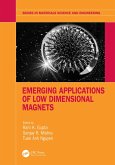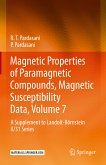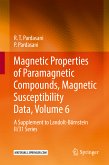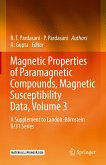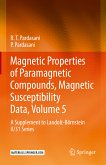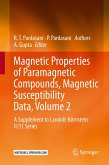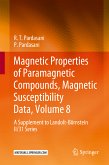The subject of this supplement to Landolt-Börnstein IV/22 Series is to present both the numerical and graphical data on the various magnetic properties of materials under pressure. Data for transition metal binary oxides M
mO
n [M: transition metals, O: oxygen, m, n: 1~15], MXO [M: transition metals, X: F, Cl, Br, O: oxygen] and MM'O
n [M: transition metals, M': transition metals or non-transition metal elements, O: oxygen, n=2, 2.5, 3] ternary oxides are presented.
As well known, the data-compiling principle in the Landolt-B¿rrnstein series is to choose the best reliable values from many available experimental data. The present compilation is done according to this principle.
Dieser Download kann aus rechtlichen Gründen nur mit Rechnungsadresse in A, B, BG, CY, CZ, D, DK, EW, E, FIN, F, GR, HR, H, IRL, I, LT, L, LR, M, NL, PL, P, R, S, SLO, SK ausgeliefert werden.



